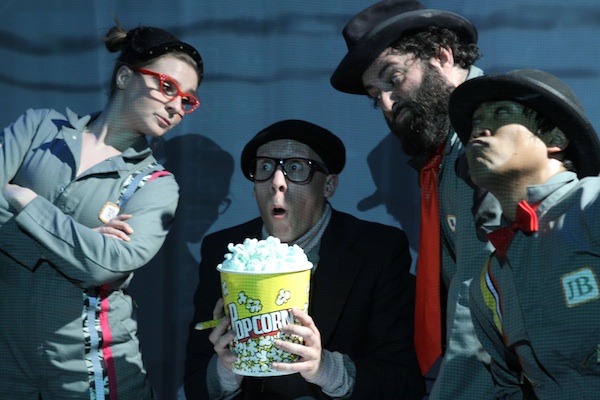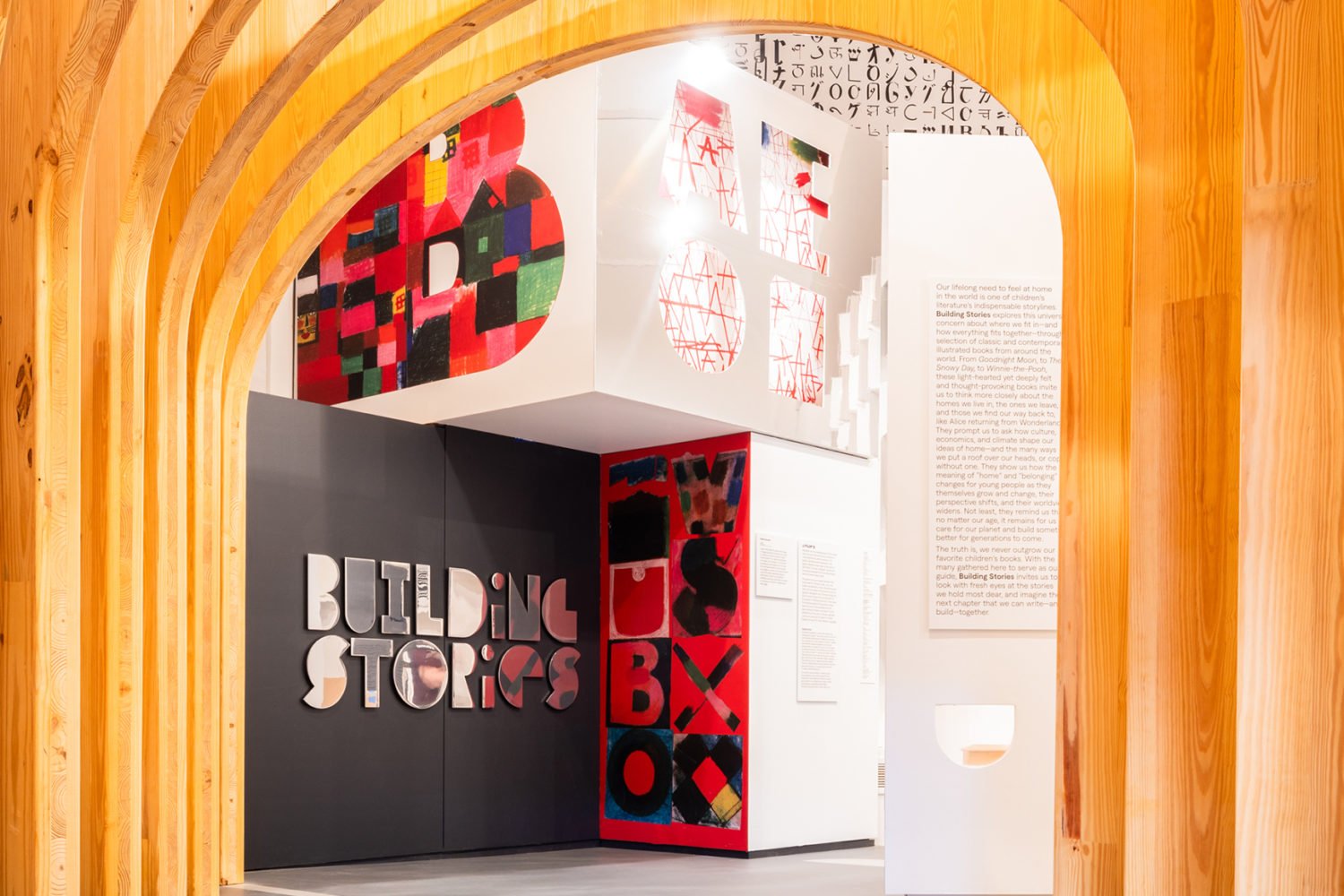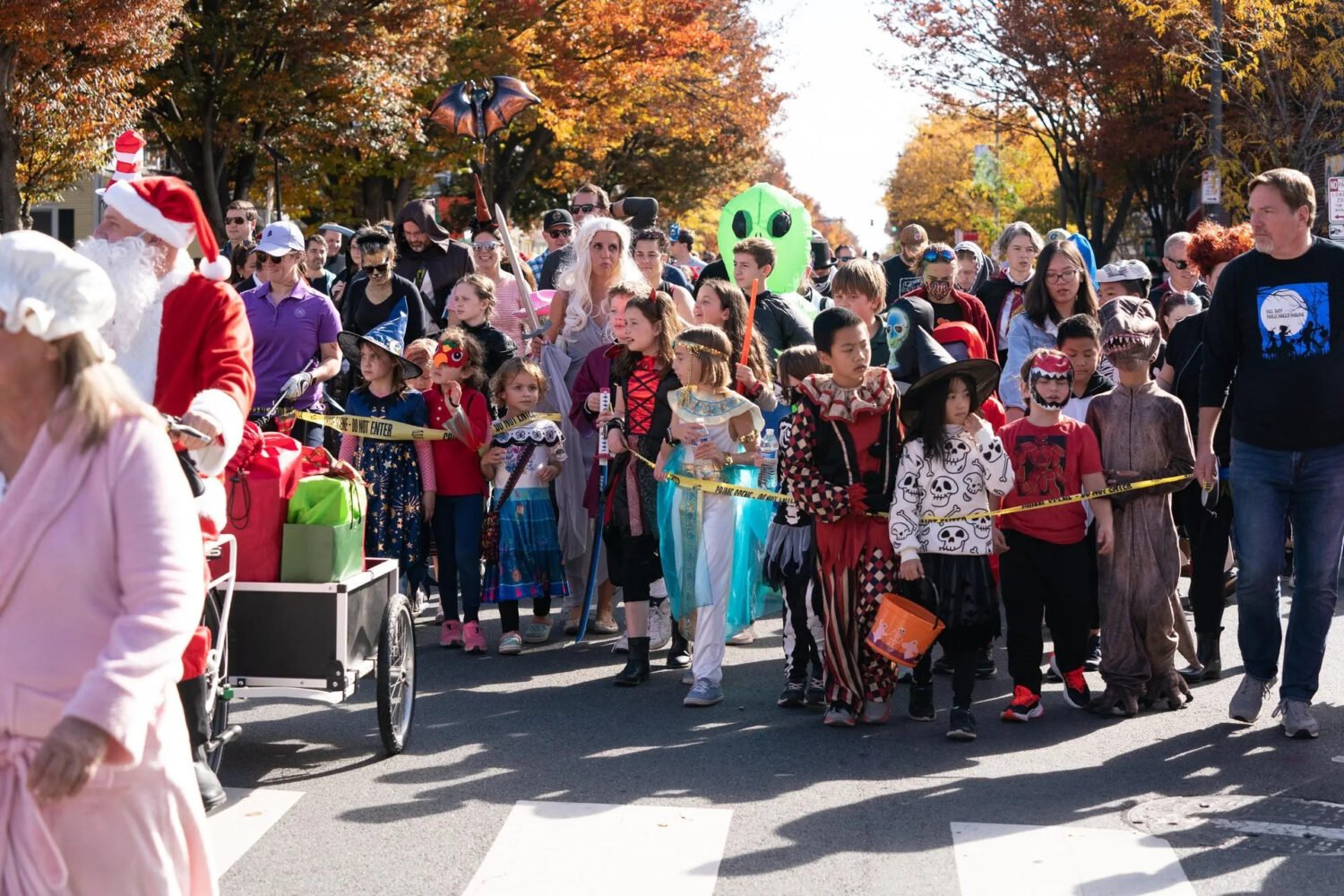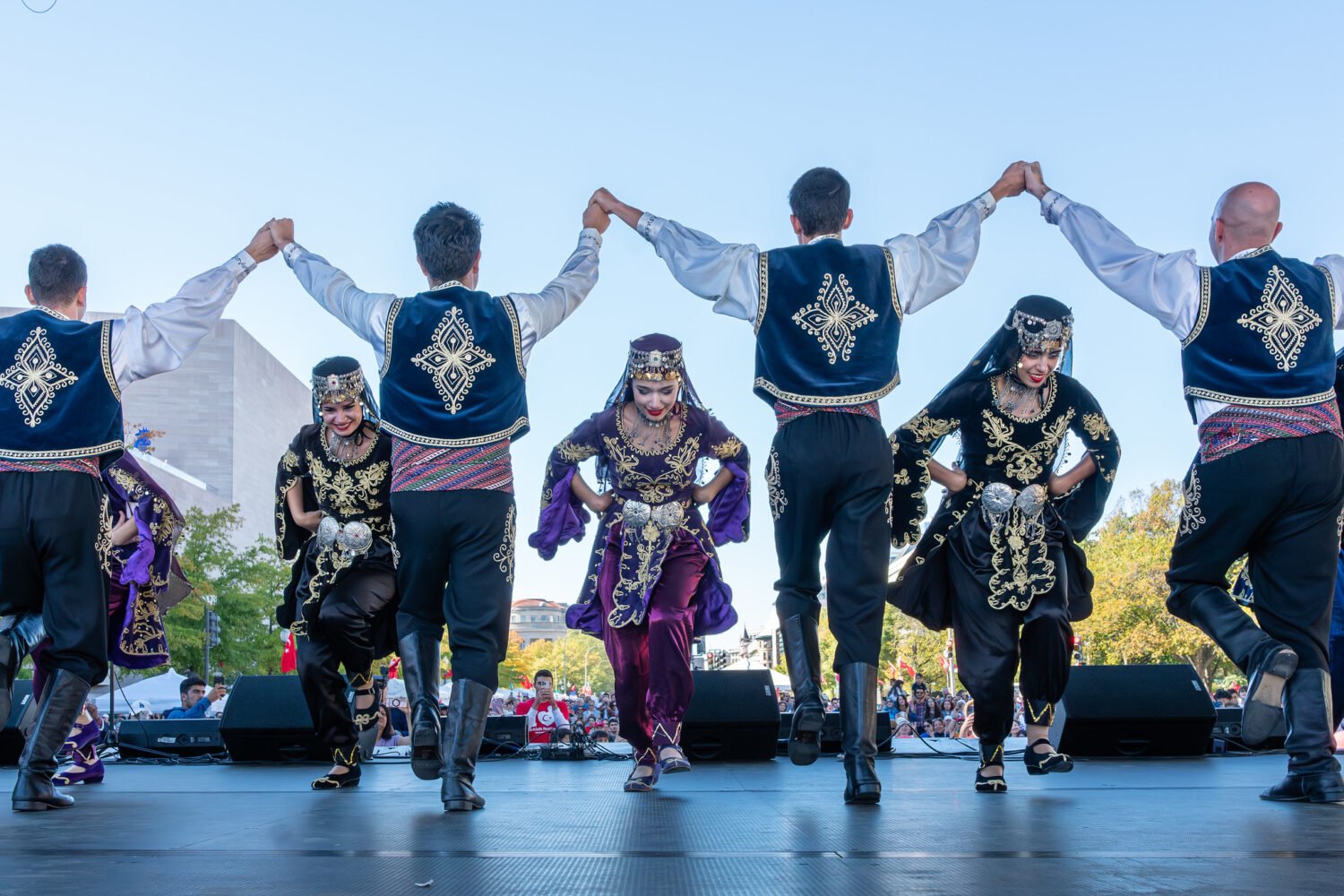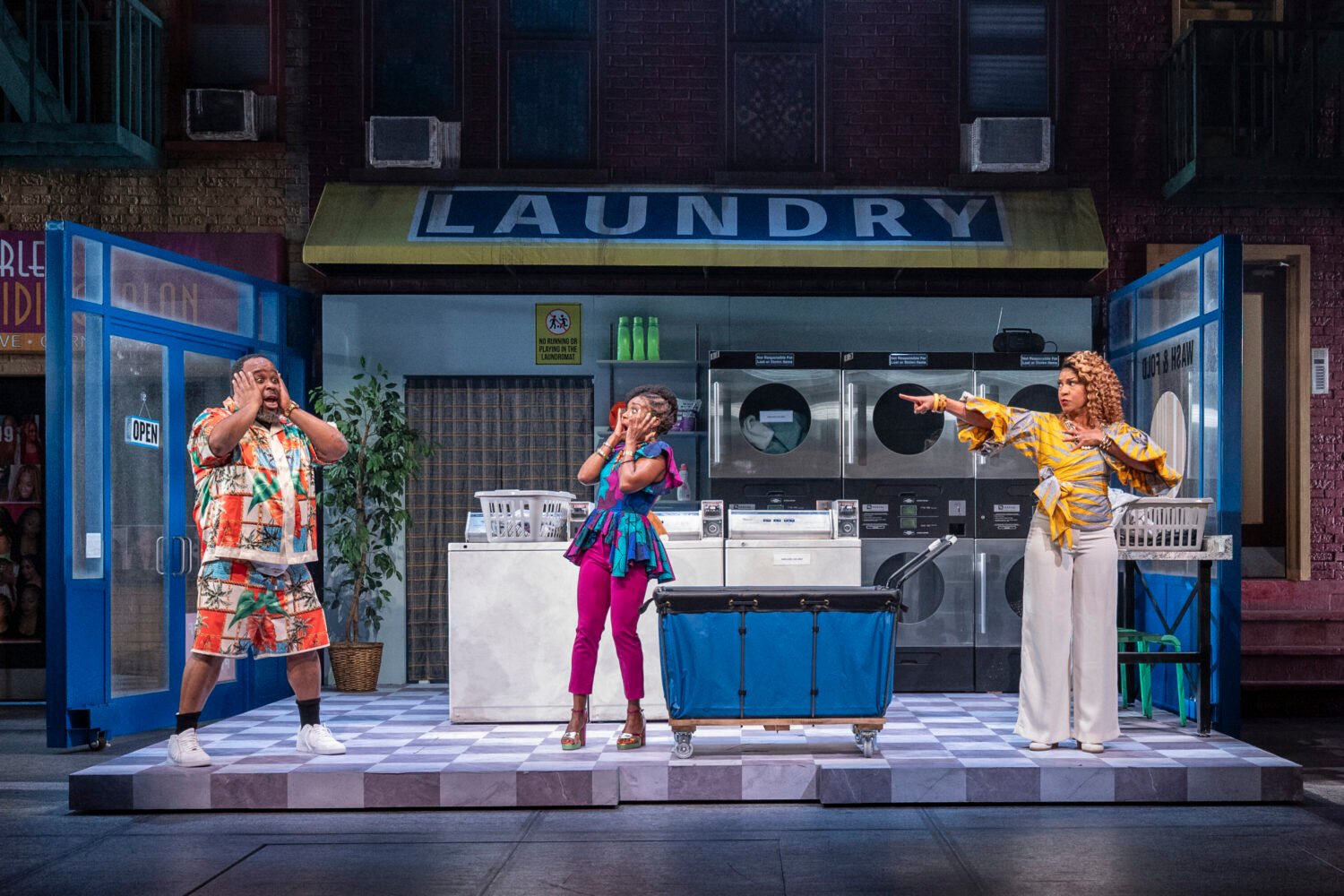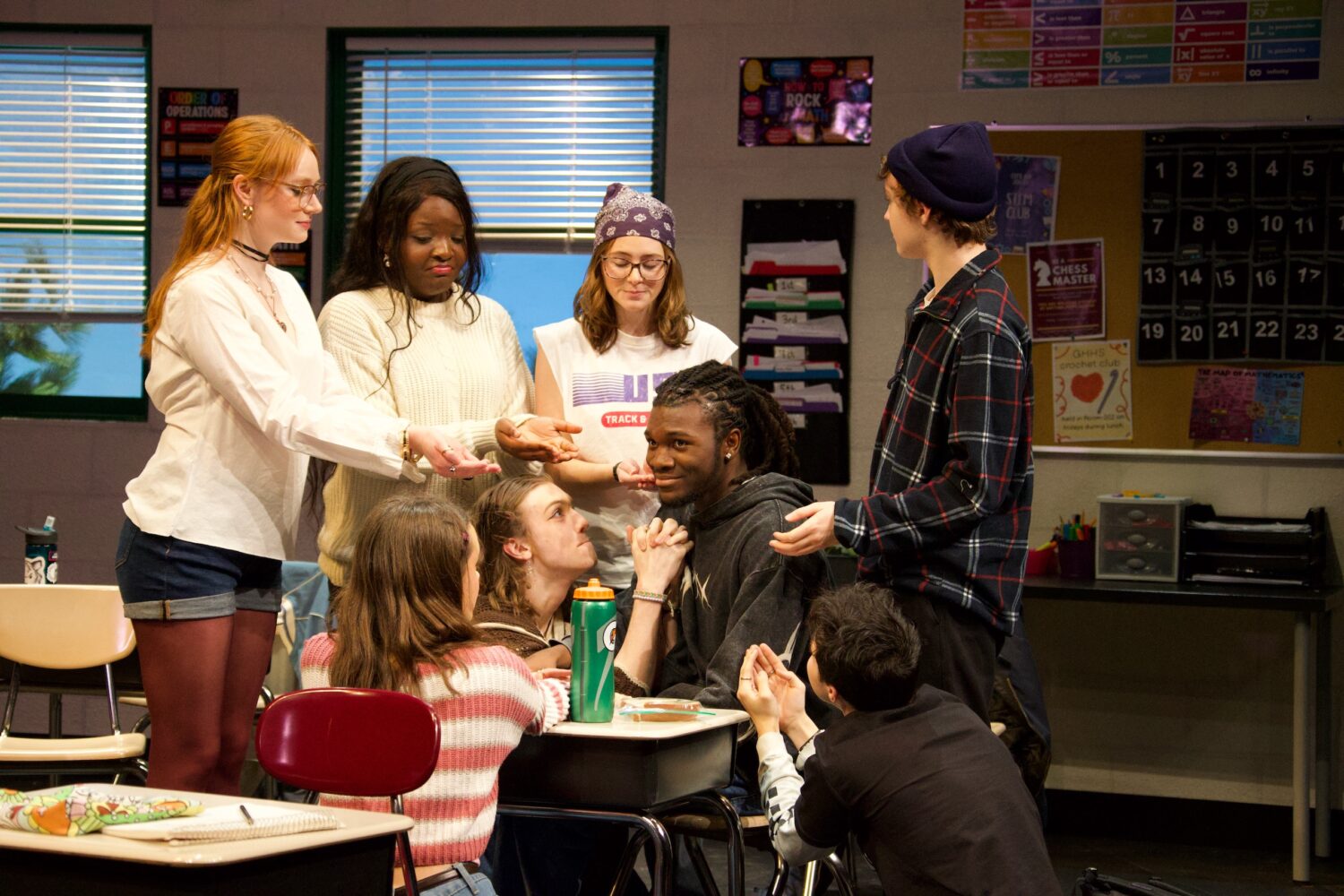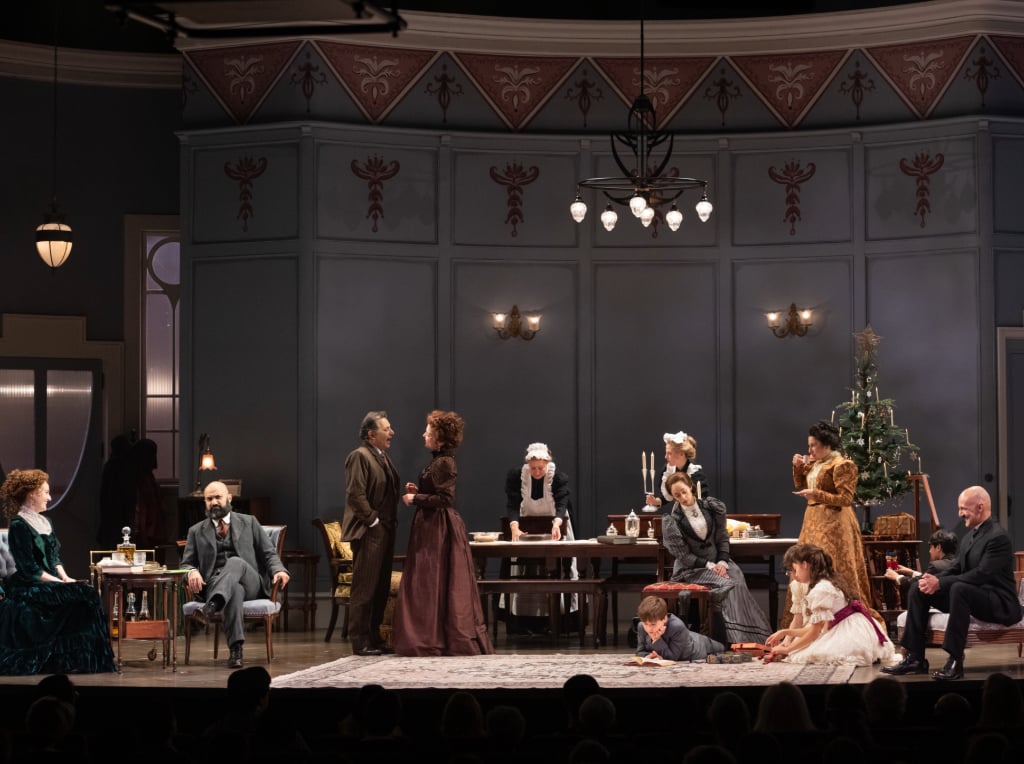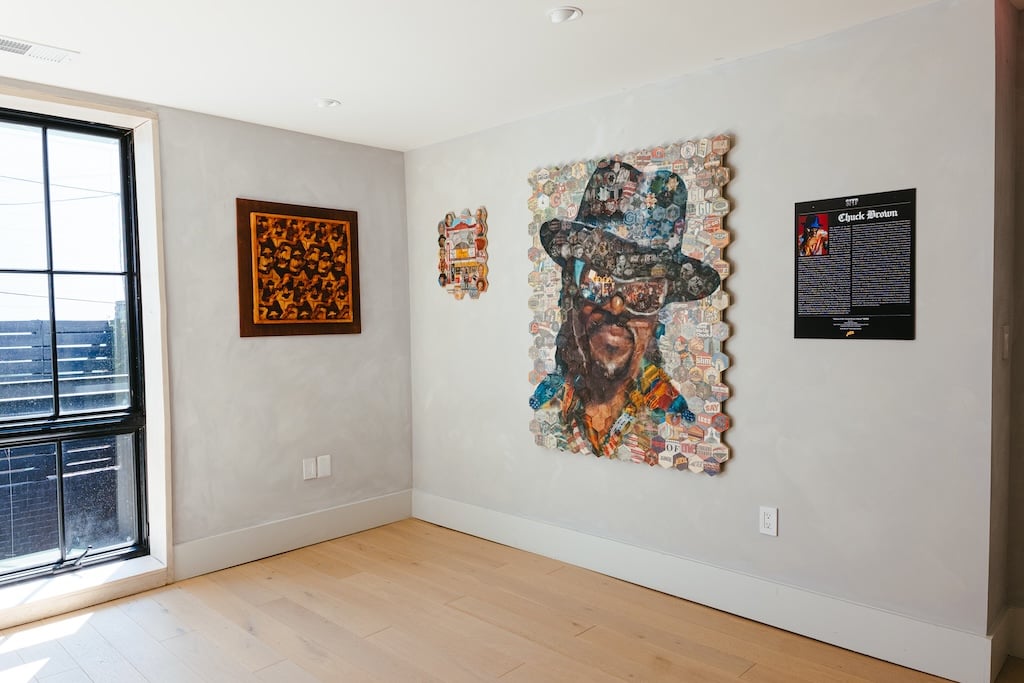Betsy Rosen, Clark Young, Lee Liebeskind, and JB Tadena in Astro Boy and the God of Comics. Photograph by Carol Pratt.
![]()
The ingenious new show Astro Boy and the God of Comics, created for Studio Theatre’s experimental wing, Studio 2ndStage, is described in press releases as a “high/low-tech multimedia extravaganza.” And believe it or not, that’s exactly what it is. Truth in advertising—what a concept.
In a fast-moving hour-plus, using actors, still projections, film, puppetry, live drawing, and more, director/creator Natsu Onoda Power cheerfully pulls us into the world of Japanese manga comics and anime (animated film) and the life of the man considered the father of it all, Osamu Tezuka. Structured as a series of ten “episodes,” unfolding in reverse chronological and numerical order, we learn how the young Tezuka, born in 1928 and weaned on his father’s love of movies and his mother’s homemade flip books, started drawing comics while in college and medical school. We learn how in 1952 he invented a robot with an IQ of 300, Tetsuwan Atom (known in the West as Astro Boy)—first as a comic book (i.e., manga) hero, then as the star of his first animated TV series in 1963. We also learn how Tezuka worked his studio assistants to exhaustion, how he sneaked out to see movies while on deadline, how he loved to wear berets, and how he often slept at the studio.
In the show’s first episode, it is the year 2014. A harried TV anchor and his intrepid correspondent inform us that a shower of radiation threatens to destroy Earth. Anyone who’s able is moving to colonies on the moon and Mars. Astro Boy, the robot hero, flies off to detonate a nuclear bomb inside the sun and save Earth. He will be destroyed, but humankind will survive.
Traveling further back in time, we enter the Astro Boy comic book narrative as the character of Dr. Boynton (Power uses the names from the Western versions of the comics) constructs a robot boy to replace his son, who died in an auto accident. The doctor builds Astro Boy in a lab, and then, in a low-tech transmogrification, in walks actor Karen O’Connell as a bionically perky, real-live Astro Boy, taking over from the prop.
Power is an assistant professor of theater at Georgetown University. She directs and designs theater at Georgetown and at professional companies. She staged Songs of the Dragons Flying to Heaven at Studio’s 2ndStage in 2010 and created the art-evocative sets for Forum Theatre’s bobrauschenbergamerica last year. (She tried to re-create a famous Rauschenberg image by dipping a tire in paint, putting it around her waist, and rolling across the stage.) Power’s PhD thesis and her 2009 book, God of Comics: Osamu Tezuka and the Creation of Post–World War II Manga, surely inspires this show. Her affection and admiration for her subject and his perhaps insufficiently recognized influence on art and culture is manifest.
Studio 2ndStage’s rough fourth-floor space makes an ideal venue for this multimedia piece. The spare set, designed by Luciana Stecconi, looks like the inside of a computer—gray floor and wall panels, overlaid with white circuitry. This provides a kind of playroom where the actors cavort as Tezuka’s characters.
Then there are the fabulous projections. With translucent curtains and a white wall at the back of the stage, multiple projections can be shown at once—sometimes while the live actors inject themselves or doll/puppets into the image. The projections occasionally take on a 3D depth, which is truly cool. At other moments, the back wall of the set becomes a drawing board on which actors can add ink to projected images, or create their own. Projection designer Jared Mezzocchi has brought Power’s ideas to fruition in a way that’s wholly accessible to us, even if we’re not sure how he’s done it.
The sound design and original music by Evan Rogers add greatly to the SLAM! BAM! SMASH! of the comics sequences and to a sense of nostalgia at quieter moments. Costume designer Frank Labovitz uses exaggeration to great effect, not only in making Astro Boy’s red boots and shiny black cone of hair come to life, but in the way the actors add odd bits to their coveralls to become other characters.
The ensemble cast—Joe Brack, Jamie Gahlon, Lee Liebeskind, Betsy Rosen, JB Tadena, Kristin Watson, and Clark Young, plus O’Connell—bring gobs of energy and wit to this unusual enterprise, getting the heightened tone and the clockwork timing just right under Power’s direction. Young has fun in scenes when he plays the manga master Tezuka.
You don’t have to be a manga maniac or a devotee of anime to enjoy Astro Boy and the God of Comics. What Power has done with this little show is tell the unique yet universal story of an artist and his obsession by yanking you into his work and his world, using every theatrical trick in the book. What a way to travel.
Astro Boy and the God of Comics is at Studio 2ndStage through March 11. Tickets ($38 to $43) are available through Studio Theatre’s website.

